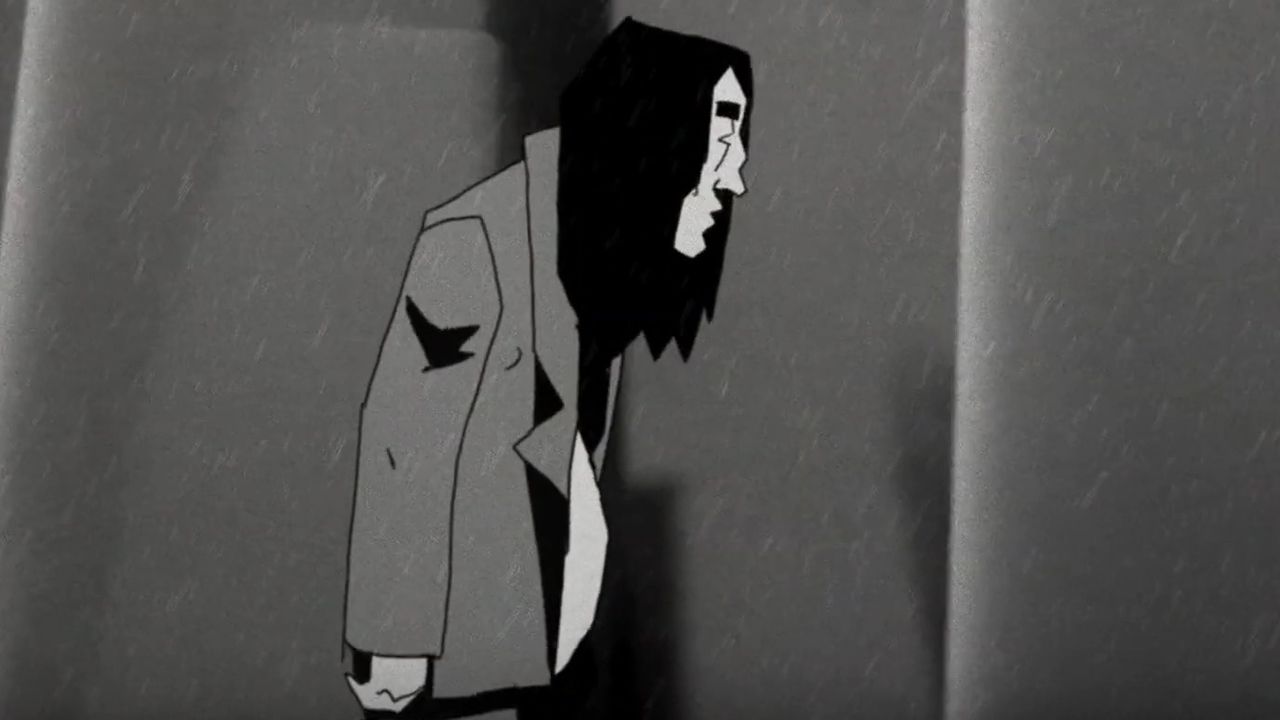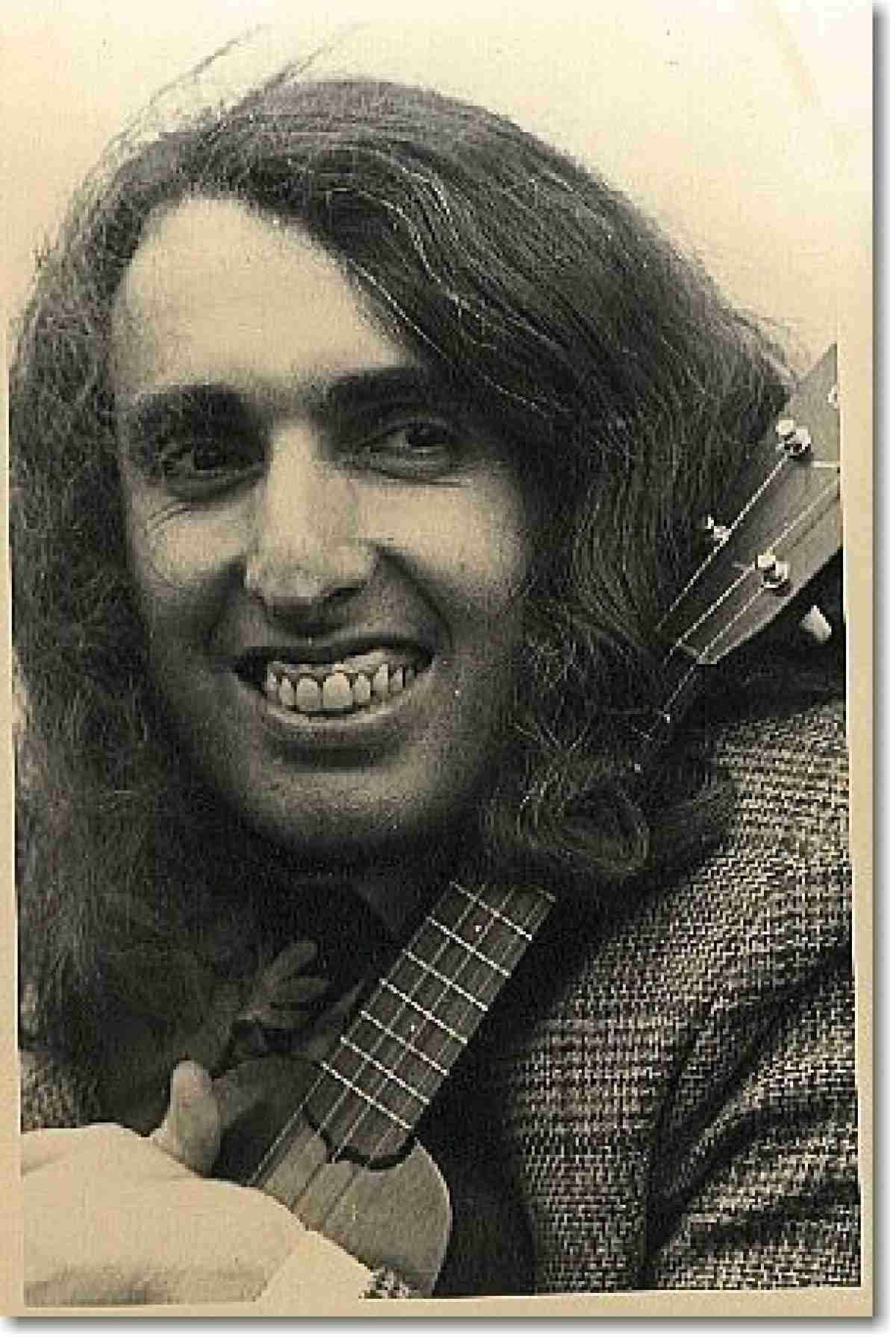

Johan von Sydow and his team covered all the bases, although, as I said before, I do wish it was a little bit longer. That, with intercut footage of his seemingly endless repertoire of live performances and the animation, as mentioned earlier, makes this a well-rounded and entertaining documentary. Tiny Tim – A King For A Day is worthwhile because of the interviews with Tiny Tim’s daughter, two of his wives, and many of his friends. They make good companion pieces for anyone interested in knowing more about the legendary weirdo. It tells the whole course of Tiny Tim’s life, but I’m sure there’s much more to discover by reading the book. I’m now interested in reading the book because, honestly, the documentary is pretty short, running less than an hour and a half. Khaury, and the documentary is based on the findings in his book Eternal Troubador: The Improbable Life of Tiny Tim. Martell, is also a producer of Tiny Tim – A King For A Day and is one of the talking heads as well. Underneath the child-like bizarre exterior, Tiny Tim definitely suffered from depression, but when his parents wanted to send him to a psychiatrist, he said, “Jesus Christ is my doctor.” Yet his parents still didn’t approve of him too much. He was married on the Tonight Show with Johnny Carson and performed on Ed Sullivan several times. From there, it wasn’t long before he shot into international superstardom. He started out playing ukelele on street corners in the Financial District and eventually started performing at Hubert’s Museum and Flea Circus in 1959.

It wasn’t before too long that young Herbert proved to be different from just about everyone around him (and I’m not just referencing his eclectic musical tastes and talent). Tiny Tim was born as Herbert Butros Khaury in New York, New York, on April 12, 1932. I didn’t know much more about his personal life than that until I watched Tiny Tim – King For A Day, a documentary by Johan von Sydow, who has previously directed documentaries for television. You’ll have to leave now.NEW IN THEATERS! In my mind, singer Tiny Tim was always an incredibly wholesome yet weird personality. In my case, a phone-call to his room was followed by him saying, “That’s a young woman I met who’s coming up to see me. We hear about a gay experience as a young man, which preceded a lifetime of awkwardly aggressive expressions of his heterosexuality (An erstwhile Tiny Tim fan-club president talks about his strange attempt at hitting on her. (It’s not mentioned in the film, but Wavy Gravy had Tiny play at his famed commune The Hog Farm, where, I was told, attendee Charles Manson professed himself to be a fan). We meet counter-culture activist and clown Wavy Gravy, who “discovered” Tiny in New York and brokered his introduction to L.A.

We see the marriage on Johnny Carson’s show - at the time, the second-most watched event on television after the moon landing. We even meet Tulip (now Tulip Stewart), the daughter from his marriage to Miss Vicki, who has a wry take on her one-degree separation from fame. But it is a pretty good tiptoe through Tiny’s travels. Though he told good stories, I never figured out Tiny Tim in several sit-downs and chats, and neither does this documentary.
#TINY TIM KING FOR A DAY DRIVERS#
There are meaningless platitudes offered by writer Martin Daniel about his place in cultural history, how he transcended politics and ethnicity, offering silliness as a balm for a troubled and divided America.Īs for ethnicity, tell that to the mostly Lebanese cab drivers who scrummed him at the airport, excited at meeting a Lebanese-American celebrity.Īnd as much as the androgynous Tiny Tim was right for the late ‘60s, his act and image stretched back to the ‘50s, when simply being weird was arguably a political act, inviting scorn from “normal” people. All we get is that he had a fairly defined vision of wanting to be famous, to be somebody. There are few motivations offered or attempts at psychological insight in Tiny Tim – King For A Day. What was the significance of this? Was it a “shtick?” An affectation? Did it somehow reflect his unsettled, troubled childhood?


 0 kommentar(er)
0 kommentar(er)
